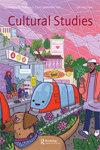文化资本与印度建筑工程债务迁移中的受约束代理
IF 1.2
3区 社会学
Q1 ANTHROPOLOGY
引用次数: 2
摘要
摘要债务移民在印度的建筑业中很普遍,剥削性的社会关系是企业资本积累模式的一个组成部分,可能会使移民陷入强迫劳动和永久负债的境地。本研究借鉴了文化资本、“受限代理”的概念,以及对移民及其妻子的定性采访,考察了特伦甘纳移民用来挑战权力等级制度并走上不同生活轨迹的具体实践和物质实践。本文指出了文化资本的性别差异,以及移民用来将自己和家人置于向上流动的道路上的代理策略。尽管仍负债累累,但许多移民成功地购买了土地,投资于农业,娶了女儿,摆脱了放债人的束缚,并私下教育了孩子。一些人已经过渡到在海得拉巴市工作和生活。这项研究揭示了受约束的代理和文化资本的使用如何与性别、种族和种姓交叉。它还表明,尽管那些继续流动的人和那些在城市定居的人的处境仍然不稳定,但微小的增量变化可能会导致社会和经济环境的重大变化。本文章由计算机程序翻译,如有差异,请以英文原文为准。
Cultural capital and constrained agency in debt-migration for construction work in India
ABSTRACT Debt-migration is endemic in construction work in India, where exploitative social relations are an integral part of businesses’ capital accumulation model that can entrap migrants in forced labour and perpetual indebtedness. Drawing on concepts of cultural capital, ‘constrained agency’, and qualitative interviews with migrants and their wives, this study examines the embodied and material practices that migrants in Telangana use to challenge power hierarchies and embark on different life trajectories. The paper draws out the gendered differences in cultural capital and agential strategies that migrants use to place themselves and their families on an upwardly mobile path. Although still in debt, many migrants had succeeded in buying land, investing in farming, marrying their daughters, releasing themselves from moneylenders, and educating their children privately. A few had transitioned to working and living more permanently in the city of Hyderabad. This research sheds new light on how constrained agency and the use of cultural capital intersects with gender, ethnicity, and caste. It also shows that while the situations of both those who continue to circulate and those who settle in the city remain precarious, small incremental changes can add up to a significant shift in social and economic circumstances.
求助全文
通过发布文献求助,成功后即可免费获取论文全文。
去求助
来源期刊

Cultural Studies
Multiple-
CiteScore
3.50
自引率
6.70%
发文量
0
期刊介绍:
Cultural Studies is an international journal which explores the relation between cultural practices, everyday life, material, economic, political, geographical and historical contexts. It fosters more open analytic, critical and political conversations by encouraging people to push the dialogue into fresh, uncharted territory. It also aims to intervene in the processes by which the existing techniques, institutions and structures of power are reproduced, resisted and transformed. Cultural Studies understands the term "culture" inclusively rather than exclusively, and publishes essays which encourage significant intellectual and political experimentation, intervention and dialogue.
 求助内容:
求助内容: 应助结果提醒方式:
应助结果提醒方式:


